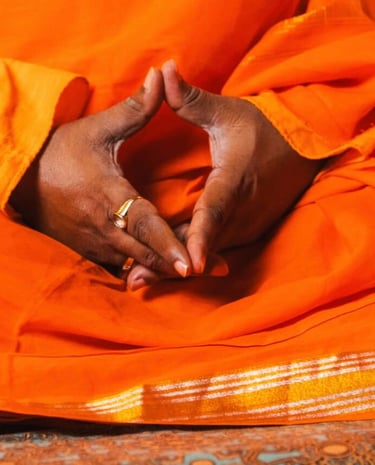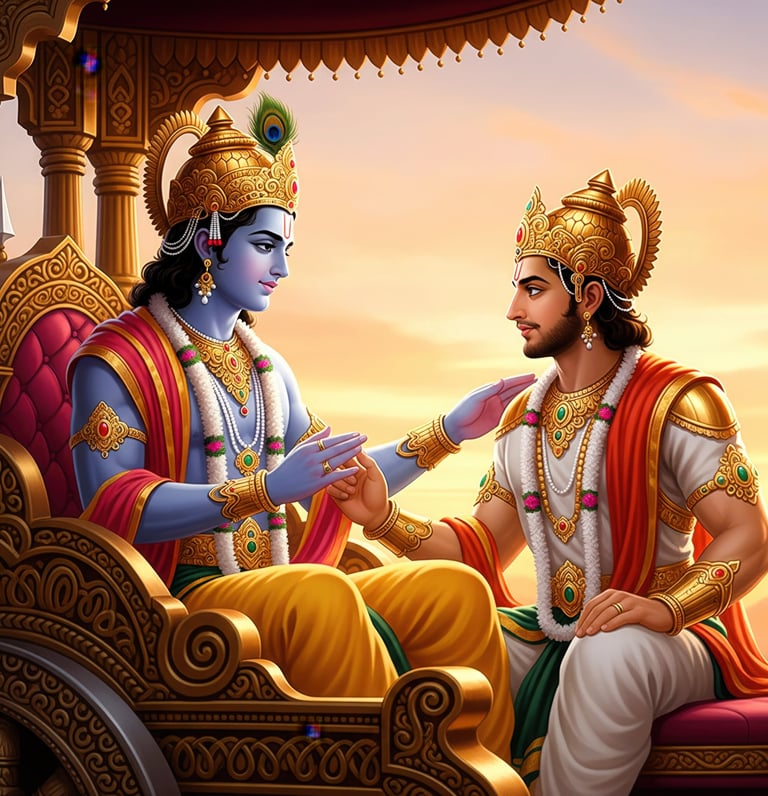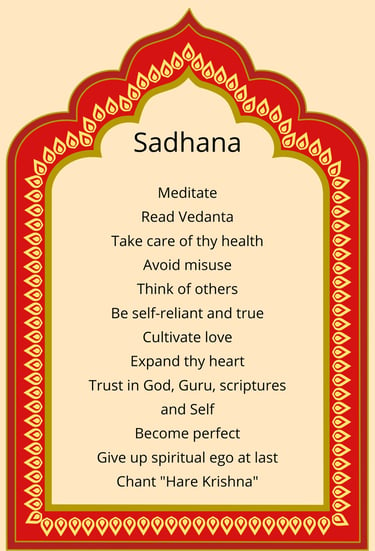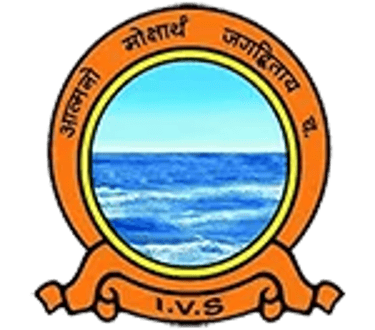Practice
Vedanta is taught in the holy scriptures of India, such as the Upanishads and Bhagavad Gita. However, simply gaining knowledge by reading books or looking at online videos is not enough to attain Self-realization. We need practice, sadhana, and guidance from a spiritual teacher who has realized this truth. Someone who can transmit this spiritual energy and knowledge to you and helps you apply it in everyday life. This practice is very important in the eyes of Bhagavan and IVS, and involves inner inquiry, meditation, moral living, and selfless service.
In the vedanta classes Swami Probuddhananda makes this knowlegde applicable in a very profound and practical way, so you can implement this in your everyday life. The different forms of sadhana will be explained to you and are a vital part of his teachings.

Happiness, peace and love
Every human being is searching for happiness, peace, love and meaning in life, for a place of utter and safe belonging. We search for it in the outside world: in matter, family and friends, travelling, things that pleasure our senses and fulfill our desires. But sooner or later we realize that these fulfillments do not bring that real sense of deep lasting peace and joy we are looking for. Vedanta offers you an approach towards true, everlasting happiness and bliss and helps us understand who we truly are: the Self, supreme consciousness, or brahman (the infinite, absolute reality). It shows us how to find it within ourselves instead of looking for it in the outside world.
You are not this
Instead of realizing this truth, we have come to consider the outside world as our reality, and most of us identify with our thoughts, desires, emotions, or body. This cannot be true, Vedanta says, for these are transient and not everlasting. Who we truly are is not the body, not the mind, and not the intellect or ego: we just think we are. As a result, we mistakenly identify ourselves with our emotions, thoughts and roles we play. This is the duality in which we live.
...When Brahma was creating the universe, he reached a point where he got stuck. He gathered all the gods and deities and said:
"I have created this universe, with all the beauty, but now I am unsure what to do next. I have created matter and nonmatter, living and nonliving beings, and among the living, I have created humans also. But now I do not know where in this universe to keep this highest knowledge of the Self. Wherever I put it, if humankind finds it, they will misuse it, due to their ignorance.”
Someone suggested: "Keep it in the depth of the ocean". Someone else said: "Keep it in space". Yet another proposed: "Keep it in the Himalayas". But Brahma said: "There will be a time when people can reach the depth of ocean, travel into space, or climb the Himalayas. The moment they do, they will find it, and misuse it. That is not the solution".
Then Lord Shiva spoke: "Keep this peace, this love, this knowledge of the Self, in the heart of human beings. People may go everywhere, but they cannot penetrate their own hearts”.
Thus, the knowledge of the Self resides within our hearts. And to find it, we need a master who has experienced this Truth to guide us...
It is within you
Vedanta comes from two Sanskrit words: Veda, meaning “knowledge”, and anta, meaning “end”. Therefore, Vedanta literally means “the end of knowledge”. In other words, it refers to the essence of all knowledge. And this knowledge is within us. This is the heart of Vedanta: all knowledge is within you and therefore within your reach.
The Advaita in Advaita Vedanta means non-duality and comes from the Sanskrit word a-dvaita, meaning “not two”. It teaches that we cannot see ourselves as separate from brahman - God, Supreme Consciousness. In essence, we are brahman. Brahman, or the Self, is infinite, changeless, attributeless, formless, and beyond birth and death.
You are That
Vedanta shows us the way to move beyond this illusion - this maya. When we are able to transcend this duality and let go of our false identifications, what remains is consciousness: pure consciousness, peace, joy, love and everlasting bliss. Advaita Vedanta teaches that there is ultimately no separation between you and the Self, or Supreme consciousness; there is only oneness. In the Upanishads it says, Tat-Tvam-Asi - “You are That”, with “That” referring to brahman, consciousness, bliss. Vedanta guides us to find this truth within ourselves. The goal is moksha - liberation, Self-realization - and with it, inner peace and harmony with all around us. In realizing this unity lies hope for true peace.
Open to everyone
Everyone can walk this path, regardless of social background, religion or culture, for each person carries that same Self and consciousness within.
Swami Probuddhananda Puri offers Vedanta classes, live in Varanasi, or online in English, with Dutch or Spanish translation, in which he brings you in contact with this profound Truth. If you wish to learn more about Advaita Vedanta, please contact us, follow one of our classes, or follow us on social media.




Advaita Vedanta


